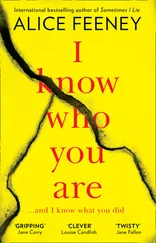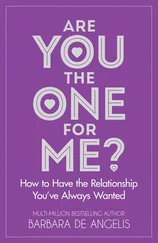Why, I remember asking my mother, did the Soviet athletes have “CCCP” on the backs of their uniforms instead of USSR? She explained that the Russians had a different alphabet, that in Cyrillic what looked to us like a C sounded like an S and what looked like a P sounded like R, and the Russian name for the Soviet Union—the Union of Soviet Socialist Republics—was abbreviated as CCCP. This was a mind-blowing concept for an eight-year-old. It had never before occurred to me that there could be other alphabets, that somewhere out in the world people were arranging entirely different shapes into words. Like most American children of my generation, I had learned the alphabet watching Sesame Street. When episodes were brought to us by the letter S, I always smiled, because S was my letter, and now my mother was telling me that in the Russian alphabet the S looked like a C. She might as well have told me that I didn’t exist. It was like money, she said. Different countries have different currencies, and you have to exchange them. Different coins and different letters sometimes. I knew about foreign currency. My father had given me a few English pounds.
The Olympic boycott was one of many signs that 1980 was a turning point in the Cold War: tensions between the United States and the Soviet Union were escalating. Whenever my mother said this, I thought of escalators. For years escalators had scared me, a phobia caused by the steep ones of the D.C. Metro, which plummet straight into darkness. Riding down into the stations induced such panic in me that for several years we didn’t ride the Metro at all. What are you so afraid of? my father asked me when I was six, as if I could rationally analyze my fear. He wasn’t afraid of anything, my father, or didn’t seem to be, and until my phobia of escalators developed, he thought I was like him. You’re turning into your mother’s child, he said to me.
We were on the steamy July sidewalk outside the Dupont Circle station. He had promised to take me to the Air and Space Museum if, and only if, I agreed to ride the Metro to the Mall. Now we were at an impasse. We stood at the top of the station entrance, looking down the short flight of stairs that led to the main escalator. I wasn’t afraid of these steps, but I knew that if I descended into the station, I would be trapped. My father would drag me onto the escalator, he would tug me like a stubborn dog on a leash. I didn’t want to turn into my mother’s child. I knew that she was not normal, that her anxiety was crippling.
What are you so afraid of? my father asked again. This time his tone was frustrated, patronizing. You are my flesh and blood, he seemed to be saying. Isn’t it time you acted like it? To my father, fear was weakness. To my mother it was preparation. I looked at him. He was so tall. Six foot four in bare feet. He was wearing a sport coat and a button-down shirt. Even on weekends, even in the heat, he dressed up. He never wore jeans. They were, he thought, too American. This dapper, impatient Englishman seemed, suddenly, like a stranger. He crossed his arms. Sarah, he said. You used to ride the bloody things all the time.
I know, I said. I could remember stepping gingerly onto the top step, careful to make sure my shoelaces didn’t catch in the spinning belt. Then clutching the handrail and looking forward, not down, as my stomach sank. The D.C. Metro has an earthy, mineral smell that reminds you you’re plunging straight into bedrock. The cavernous stations are so deep and cold that you half expect to see stalactites dangling from the stone ceilings. The New York and Moscow subways hum with civilization; they smell of human exertion and alcohol-saturated despair. But in Washington, where the trains are not as crowded, where the walls are not tainted with advertisements, the Metro feels almost organic. It’s as if the stations were hollowed out by some primal force. Even the platforms used to scare me. The lights at the edge flashed to warn that a train was coming, then turned a threatening red as the train pulled in to the station. I was always afraid I’d fall onto the track.
I can’t, I said to my father. I just can’t.
Fine. I give up, he said . Let’s go home.
We trudged along Q Street toward our car. He walked ahead of me, let his back show his disappointment. I had failed. A month later he left.
* * *
SO THE SECOND defector was my father.
There was another woman involved—there usually is in these situations—but my mother was so unstable that he probably would have left even if he hadn’t met someone else. My mother had an anxiety disorder, and her panic attacks were triggered by a wide variety of daily activities: driving over bridges, flying (or any kind of travel, really), heights (she wouldn’t go above the fourth floor of any building), crowds (tourist-riddled museums had to be avoided), and confined spaces of all sorts (Metro cars, movie theaters, and elevators were all off-limits). The panic developed after my sister died—a not-atypical response to such trauma, her psychotherapist said—and my mother no longer felt safe anywhere. She could be her usual charming self—she had a coquettish streak, and in those days she and my father still entertained people—but she was also capable of wild mood swings. It was not uncommon for her to disappear in the middle of a dinner party. My father would find her hiding in the bathtub, fully dressed, while her guests pretended not to notice her absence. Most people tolerated my mother’s behavior as mere eccentricity; she was beautiful, so she got away with a lot. She insisted on keeping all the lights on at night; she couldn’t bear the dark. She couldn’t sleep without pharmaceutical aid. She became obsessed with preparing for disaster, as if vigilance alone could save us. She slathered my face with sunscreen even on cloudy days. She stockpiled batteries and medications and took my temperature every morning as a precaution.
My father was a pragmatist. My sister’s death confirmed his worldview: that terrible things happen despite your best efforts and when you least expect them, so there was no point living paralyzed by fear. For my mother, Izzy’s sudden death was a reminder that she could never let down her guard, that to relax even for a moment was to open the door to danger. My father took me to the places she wouldn’t go: to the dentist, whose office was on the seventh floor of a Bethesda high-rise; to my gymnastics classes that were located in Virginia and required a trip across Key Bridge. He did his best to compensate for my mother’s agoraphobia. But the more neurotic she became, the less time he spent at home.
And then one day he’d had enough. He was exhausted, he said. He couldn’t do it anymore. This was 1979. In the wake of Watergate, every institution—including marriage—seemed to be falling apart. (“Of course your parents split up,” college friends said to me later. “Statistically speaking, it’s incredibly likely for a marriage to end after a child dies.”) My father had moved to Washington to work for the IMF as an economist, and when he left my mother, he went back to London to join an investment bank. He said he was leaving my mother, not me, but after that I was lucky to see him once a year. The first year he flew in for a long weekend, took a suite at the Mayflower Hotel, and escorted me around like a tourist. He watched me scramble over the giant bronze dinosaur outside the Museum of Natural History. We went paddleboating in the Tidal Basin. We climbed to the top of the Washington Monument and took in the broad expanse of Constitution Avenue from above. When people asked my mother about her husband, she said, “He repatriated.” But he defected. Once he left, he was gone for good.
Читать дальше












